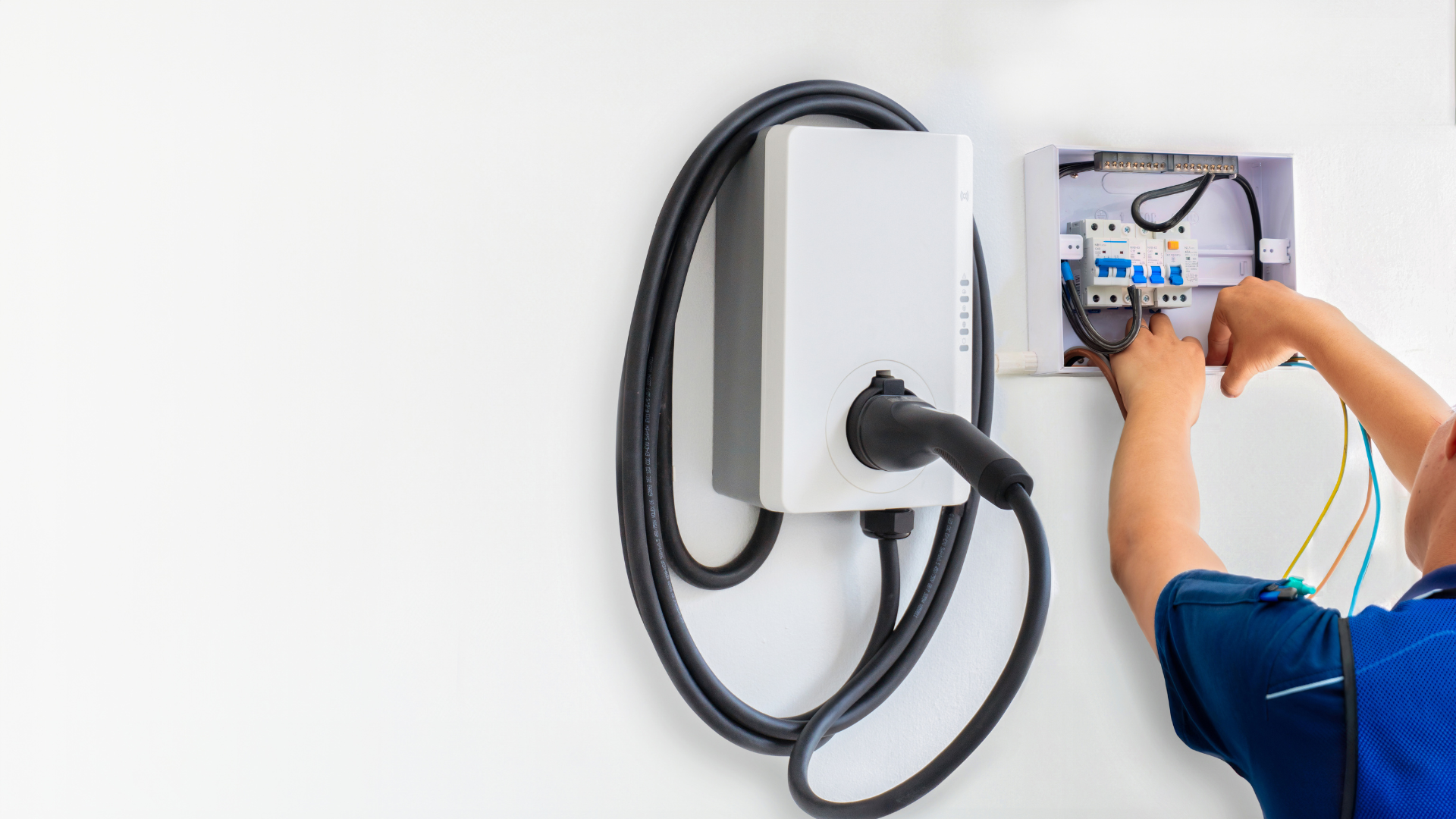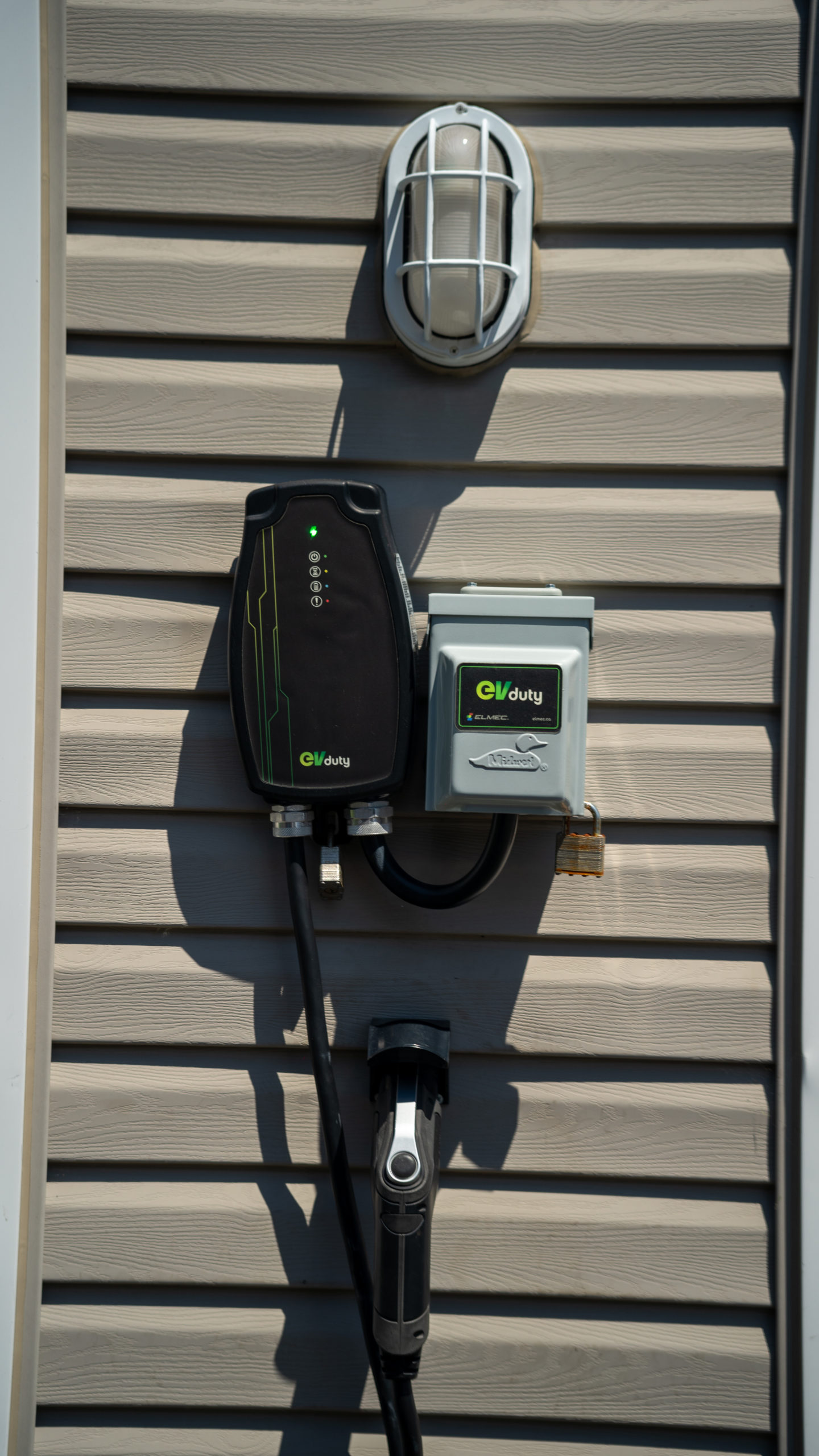Photo by ChargeHub
If you own an electric vehicle (EV) and hope to charge your car at home, you will most likely have to decide between a hardwired or plug-in EV charger. It’s essential to understand the differences between the two types of EV chargers as this choice impacts not only convenience but also the installation process and overall functionality.
Faster Charging with Hardwired Chargers
For quick charging, especially before long trips, hardwired EV chargers are ideal. These stations are typically rated at 48 amps or higher.
Examples of hardwired chargers include, but are not limited to:
Important Things to Consider for Hardwired EV Chargers
No matter which you choose—a hardwired or plug-in EV charger—there is a key distinction between the two when it comes to installation. For instance, hardwired chargers typically require professional installation by a licensed electrician. This ensures that the charger is properly connected to your home’s electricity system and meets all safety standards.
Moreover, a licensed electrician will be able to determine if your home’s electricity system can handle the power demands of a hardwired EV charger (an essential step to the installation process). Why? Your electrical panel acts as the control center for all the electricity in your home. Each appliance and device requires a certain amount of electricity to function properly. When adding something new, like a hardwired or plug-in EV charger, you need to ensure your electrical panel can handle the extra load.

Understanding Electrical Panel Capacity
Your electrical panel is like the heart of your home’s electrical setup. It takes electricity from the main power line and distributes it to various circuits throughout your home. Each circuit is safeguarded by a circuit breaker, which cuts off power if there’s too much electricity flowing or if there’s a short circuit. When you’re thinking about installing a hardwired EV charger, it’s vital to check if your panel has enough capacity to handle the additional power demand.
Here’s a tip: your panel should have at least 10 more amps available than what the charging station requires. For instance, if the EV charger needs 48 amps, your electrical panel should support at least 60 amps. This provides a safety margin and helps prevent overloading.
Convenience and Versatility of Plug-In EV Chargers
In contrast, plug-in EV chargers offer flexibility and easy installation, often with lower amperage, such as 40 amps or lower. You typically don’t need an electrician for installation, especially with a NEMA 14-50 plug available. Even so, it’s still crucial to check if your home’s electrical panel can handle the charger’s power needs as you would do with a hardwire EV charger.
Examples of plug-in EV chargers include, but are not limited to:
Portability and Security Plug-In EV Chargers
Another advantage of plug-in EV chargers is that they’re easy to move around. You can unplug them and take them to a second home, cottage, or even bring them along when you visit family or friends, as long as there’s a compatible plug available where you’re going. They come with locking mechanisms for safety, and outdoor plugs have additional security features.
Important Things to Consider for Plug-In EV Chargers
Before opting for a plug-in EV charger solely based on installation simplicity, it’s crucial to take a holistic view of the costs involved. In addition to the price of the charger itself, you should also factor in any necessary upgrades to your home’s wiring or electrical panel to accommodate the charger. These upgrades may be required to ensure that your home can safely handle the increased electrical load of charging an EV. Furthermore, don’t forget to consider any installation fees that may apply, whether you’re hiring a professional electrician or doing the installation yourself.
Choosing the Right Home EV Charger
In conclusion, choosing between a hardwired and plug-in EV charger depends on your specific needs and preferences. If you prioritize faster charging and are willing to invest in professional installation, a hardwired charger may be the best option for you. On the other hand, if you value flexibility and easy installation, a plug-in charger offers convenience and versatility.
By considering the overall cost, including the price of the charger, potential electrical upgrades, and installation fees, you can make a well-informed decision that meets both your budget and safety requirements. Remember that regardless of your choice, it’s important to ensure that your home’s electrical system can accommodate the charger’s power requirements. Consulting with an electrician before making a decision is advisable to assess your home’s compatibility and safety.
Curious to find out more about the best charging option for you?
If you have any questions or need assistance, feel free to contact us:
Phone: 1-888-400-0164
Email: support@chargehub.com
